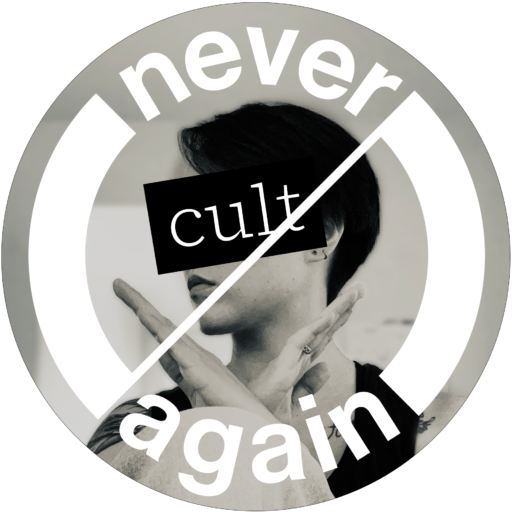I’ve been diagnosed with scrupulosity OCD, which means I have obsessive thoughts that I might be a bad person and compulsive actions to “correct” my behavior or reassure myself that I’m not bad.
Although I’ve gone through therapy and no longer meet DSM-5 criteria for obsessive compulsive disorder, it was quite severe while I was a member of the WMSCOG.
On the outside, I looked like a faithful member. I kept all the services and came to church during my free time. I obeyed everything that my superiors told me to do without inserting my own will. Every waking moment I spent doing my best work for the church or Big Shine.
Even if I were asked to do something I didn’t know how to do, I would learn and do it anyway. I didn’t talk back, didn’t make unnecessary comments, wasn’t stubborn, didn’t have my own motives outside of what would serve the church.
On the inside, I was constantly criticizing myself. If I saw a leader rebuke someone, I believed it was really for me to hear and applied it to myself. I believed myself to be worse than anyone else.
I used to practice sermons over and over in my head, trying to get the wording perfect. But when I became too busy to practice sermons, I avoided studying and preaching out of fear that I would mess up.
I didn’t want to study with new people for fear that I would kill them. But if I was asked to, I would, feeling guilty like a surgeon without the proper training.
I constantly felt anxious as if I were hiding from the police, because I was such a horrible person with so many hidden sins. Everything is exposed in Zion, they would say. It was only a matter of time before I was exposed.
Exposed as someone who had no faith, someone who didn’t preach, someone who couldn’t bear lasting fruit, someone who didn’t truly believe, someone who was destined to die.
It’s hard to express what it felt like to live with this kind of paranoia constantly on my mind. I want to express this because due to my “good behavior” resulting from my OCD, I didn’t experience much direct abuse from the church except some scolding in private, being screamed at over the phone, and being overworked. But I came away from the church feeling traumatized and abused.
I’m not the only person who thinks the WMSCOG is abusive. There are many painful accounts of people being deliberately and publicly shamed and humiliated, forced to marry people they don’t want to marry, etc.
The point I want to make is that the abuse was not only directly doled out—it was systemic. Even some of those who did everything right lived in constant fear and self-deprecation, because that is what the WMSCOG instilled in members through sermons, videos, and other messaging. If I wasn’t rebuked, I felt like I’d dodged a bullet that was meant for me. When I married someone I wanted, I felt like a guilty sinner because it wasn’t what we were supposed to do.
For me, for the most part and especially in my later years at the church, it was my own mind that caused my trauma rather than abuse from leaders. But the church provided a systemic framework to feed and perpetuate my thoughts and actions. And having spoken to others who also left, I wasn’t the only one constantly plagued by fear and guilt.
Click here to learn more about scrupulosity OCD.
